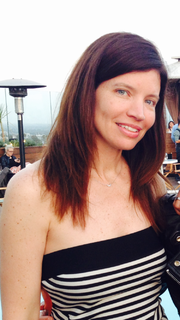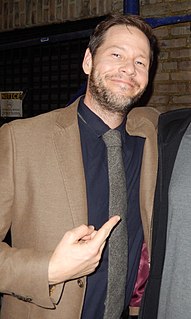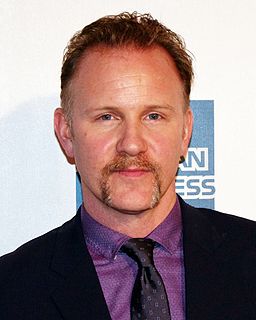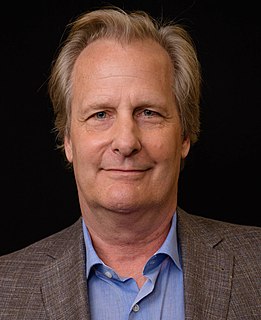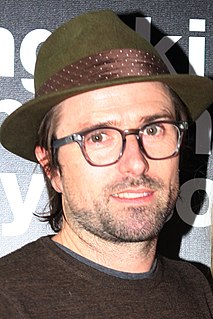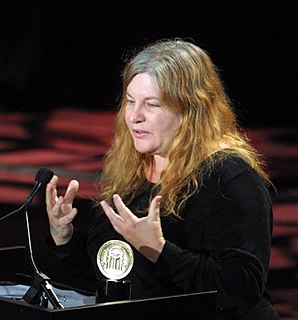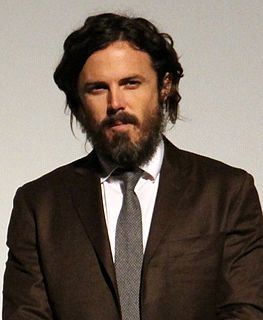A Quote by Ti West
You get to actually make your movie. As a filmmaker, that's the dream. That's why you get up in the morning, to be able to do that. You feel constrained sometimes, but if the movie makes sense in the budget realm, then it isn't hard.
Related Quotes
Directors typically have three choices - you do a studio movie and get a paycheck up front, you do an independent movie, which is for your heart and you don't get paid up front and probably don't make any money on it, but it hopefully goes to Sundance and is more of an art movie, and then you do TV.
One of my beliefs as a filmmaker is that if you can make somebody laugh, you can make them listen. With laughter, you can get somebody's guard down, you can open them up to listening to you. They don't feel like they're being preached to or talked down to. I think it helps, it makes really hard to understand information a little more accessible and palatable. And at the end of the day, it makes a movie a little more fun. It doesn't feel so heavy handed.
On indies it's hard to do, but in rehearsals, you make mistakes in rehearsal. It's really hard rehearsing a play or what rehearsal you get on any movie. That's where you get to make your mistakes, and you make big ones. So when you shoot [the movie] or you finally get the play in shape and do it, the mistakes are out of the way. If you're not afraid to make mistakes, then there is no writer's block or actor's block.
I've ended up as a filmmaker who really loves the movie part of movies. That time in my life was a big influence on the kind of movies that I ended up making. I always think I'm going to make a movie that's gritty and real, but then I make a movie that's like an opera. I fight it at first and then that's just the way it is.
I find music the the clearest and easiest way in to what a movie will feel like - more so than visual references or other movies or dense dossiers of research material. Every now and then I'll send a piece of music or two to people I'm working with - actors or heads of department - when I think it'll help them get a sense of the kind of movie I'm proposing. Often those pieces will end up in the movie - sometimes they won't.
I don't know what the misconceptions are, but I approach a small budget, artsy, independent movie in the same way as a big budget, commercial Hollywood movie. I don't get into those [details]. I have to get into my character and I concentrate on that, on the story, on researching, and on certain training if I have to be prepared physically. I think that's the most important thing.
When you screen it the first couple times, you're just trying to get the movie to work, trying to get the story to flow, trying to find out where your areas are where you have enough breath to laugh a little bit. So you're doing that the first two or three screenings, and then finally, you dial the movie in and it's working, and at that point, it's 50/50 as far as what's funny and what's working. Sometimes you'll put something in and it will just die so hard that it'll almost kill the movie.
First of all, I had the desire for that format [silent movie], and then when I was talking to people, I felt that people needed justification. Why are you doing a silent movie? Is it just for your own pleasure? I felt it was not enough for them so I realized I have to choose the subject that will make things easier for them and to tell the story of a silent actor makes sense for doing a silent movie.

